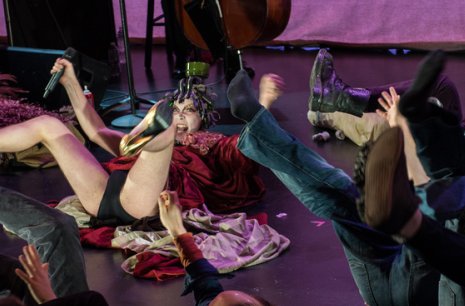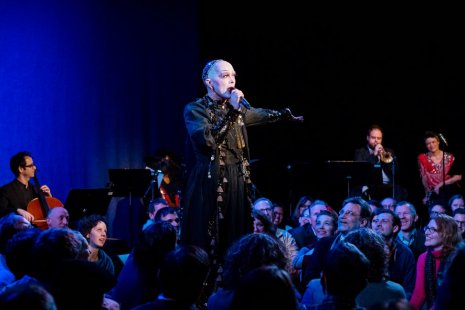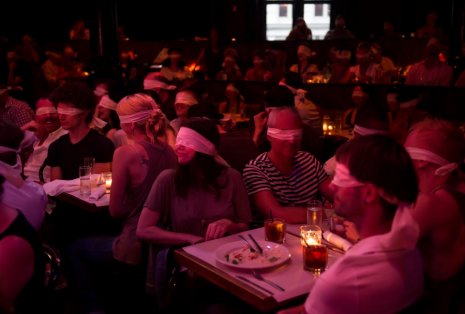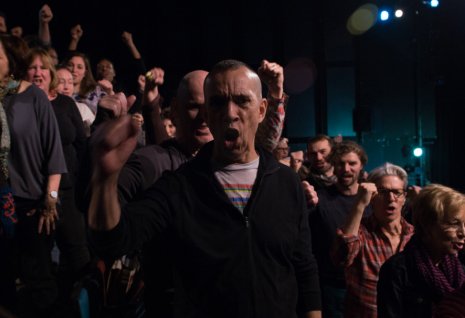MJ:
This is a big crazy question but one that is once again (or perhaps continuously) on peoples' minds: Why do we still need live theater? What is the continued argument for survival for the seemingly continuous fabulous invalid? What are your thoughts about all this, why do you stay in it - and what are your own desires to perhaps try to make an impact in its nature - or do you want to do something completely different? And where would you like it, and yourself to go?
TM:
Theater reminds an audience of the things they’ve forgotten, dismissed, or buried or that others have buried for them. It unearths. It brings the conversation you aren’t having with yourself into the room. It’s part of human nature to deny. It’s a survival technique to forget, to put aside for a later time when you can listen to the complications or handle trauma or dissent. Theater is here to be that later time. When it’s really good it eases audience members into the discussion and then keeps them present with that discussion. I think of theater as a seditious act.
Sometimes the authority it inspires you to rebel against is a government, a despot, or social dictate but often it’s your sense of self; it inspires you to rebel against a simple and obstinate understanding of who you are.
Ultimately the goal for all theater is to heal. (It’s obnoxious and possibly ignorant of me to assume all theater is about healing but I stand by it…for now.) Sometimes theater heals by causing more pain (like breaking a bone to reset it) and sometimes it does it by filling you with joy. Often, though not enough for my taste, it heals by encouraging an intellectual pursuit or some kind of action from its audience.
We do seem to lack ritual group gatherings, outside of sporting events or the church. If you’re not into sports or institutionalized religion, you don’t have many options. That’s why repertory and the theatrical serial are exciting to me. Rep and serials are seasons/plays/live experiences that you have to come back to many times to get the full picture. Ritual and community are created as a result of those repeat trips. I’ve experienced this with the work we’ve done so far on “A 24-Decade History of Popular Music.” Each decade has been it’s own show. Audience members come back to see multiple decades. They end up meeting each other through their shared experiences at the shows. In the process we’ve built and are building a community. We’re using an ephemeral art form to create tangible and deep connections. Eventually I’d like to make this kind of theater under a system like Mixed Blood Theater’s Radical Hospitality program where at least half of the tickets for every performance are free. It’s a great step towards encouraging the theater as an alternative to the more homogenous demanding rituals like sports and institutionalized religion. If price isn’t an option, like it isn’t at church, you go as many times as you want to, you bring others with you, you start to experience the professional theater as your community’s theater (as opposed to community theater).
What excites me about theater is that it makes use of the things we don’t want to confront. It makes use of the things we dismiss. It finds interest in the discarded. I think we all feel discarded at times, so an art form that is interested in what’s discarded and making that of use to a people is a good form to dedicate one’s life to. In this way I feel theater is useful and I am of use as a theater artist. It’s the only reason I’m still doing it.





